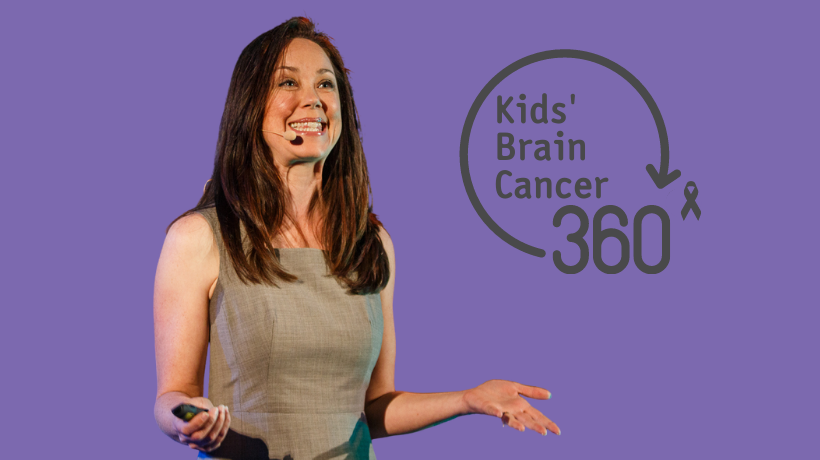
Kids’ Brain Cancer 360 is an editorial series where The Kids’ Cancer Project takes a deep dive into the issues confronting children diagnosed with this, the deadliest disease faced by Australian families today, by speaking with a broad spectrum of carers.
Today we hear from Dr Jordana McLoone, Post-doctoral researcher, Kids’ Cancer Centre, Sydney Children’s Hospital, who has dedicated her career to helping children and their families cope with the impact of a brain cancer diagnosis.
I work in childhood cancer research. My research isn’t aimed at finding a cure. My work centres around children, and families of children who have experienced a cancer diagnosis and how this impacts them through a psychological and social lens. By better understanding how cancer has impacted their lives, we can improve services and resources.
The work explores families’ experiences from diagnosis all the way through to survivorship or bereavement.
We know that brain cancer doesn’t have survival rates equivalent to some other cancer diagnoses. Its diagnosis also means that survivors may experience quite significant, lifelong effects. They may experience cognitive deficits that will impact education and career attainment, as well as things like independence, driving and leaving home, etc.
Survivors may also experience neurological and endocrine issues. Finding the right support for these issues can be quite challenging for families, as resources are limited.
The transition from paediatric care to adult care sometimes makes it even more difficult to find the right specialists to provide ongoing care. Improving this transition is something we are working on.
We have also developed an intervention called Engage, which aims to engage childhood brain cancer survivors who have, over the years, become disengaged from comprehensive cancer care. We find that about half of our survivors disengage from survivorship care because there are many barriers to receiving long term care.
Survivors at Sydney Children's Hospital live, on average, about 200 kilometres from the hospital, and our catchment area includes families who live up to 600 kilometres away. If you live in Western Australia, there is only one survivorship clinic in Perth, which is unable to provide care for children once they turn 18. Childhood cancer survivors living in the Northern Territory or Tasmania, must travel to Adelaide. These are huge catchment areas.
So we’ve developed an intervention that can be remotely delivered, using an online head-to-toe health assessment, supported by a survivorship nurse. The assessment is then reviewed by a multidisciplinary team of experts who make recommendations, which are provided to the survivor and their GP to implement at the local level. The nurse provides additional follow up care remotely over the subsequent months to ensure survivors are engaged, educated and empowered.
Engage is showing some great results.
We need to recognise that brain cancer survivors struggle sometimes to find the right people to care for them. When they find the right care, delivered in an accessible way, the care pathway is utilised well. The pilot study for Engage had a 76 per cent uptake and zero attrition – which is incredible given that all these survivors were previously disengaged. It is so important for brain cancer survivors to receive regular comprehensive cancer care, to ensure they have the best possible outcomes in terms of quality of life.
Our research aims to ensure brain cancer survivors can access comprehensive survivorship care, ensuring their physical and mental health needs are met and that early intervention and prevention, not the treatment of disease, is the goal.
